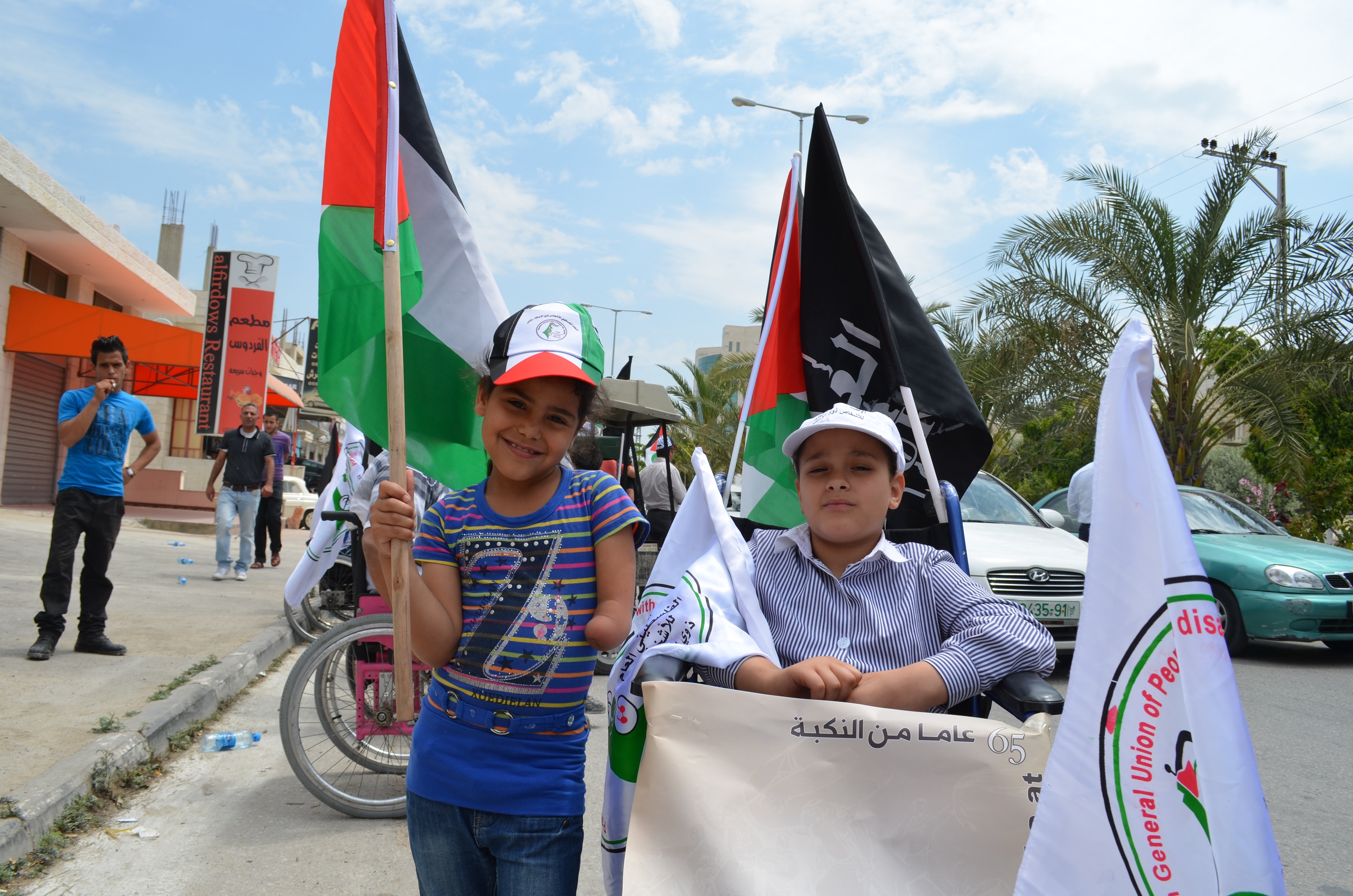-
Photo essay: March through Nablus and Tulkarem commemorates the Nakba
13th May 2013 | International Solidarity Movement | Nablus and Tulkarem, Occupied Palestine By Team Nablus Today, at around 8am, over thirty people from the Palestinian General Union of People with Disability marched through the city of Nablus to commemorate the 65th anniversary of the Nakba. After the march, a bus drove participants to Tulkarem […]
-
A life of uncertainty under occupation
13th May 2013 | International Solidarity Movement | Beit Ummar, Occupied Palestine Team Khalil At 3am on 13th May, Nasri Sabarna of Beit Ummar woke up to the sound of Israeli soldiers kicking down his front door. The sound of them shooting tear gas, rubber bullets and sound bombs at people passing his house on […]
-
Adel Baker, a fisherman from Gaza, now fighting for his life in hospital
13th May 2013 | International Action for Palestine | Gaza, Occupied Palestine By Rosa Schiano On May 1st many countries celebrate the achievement of workers on Labor Day weekend. In Gaza too, workers celebrated labour day in a demonstration in the centre of Gaza City. Yet, for the Palestinian fishermen there was nothing to celebrate. […]
Action Alert An Nabi Saleh Apartheid Wall Arrests BDS Bethlehem Bil'in Cast Lead Demonstration Denial of Entry Ethnic Cleansing Farmers Gaza Global Actions Hebron House Demolition International law Israeli Army Jerusalem Live Ammunition Nablus Ni'lin Prisoner Ramallah Rubber-coated steel bullets Settlement Settlers Settler violence Tear-Gas Canister Video

